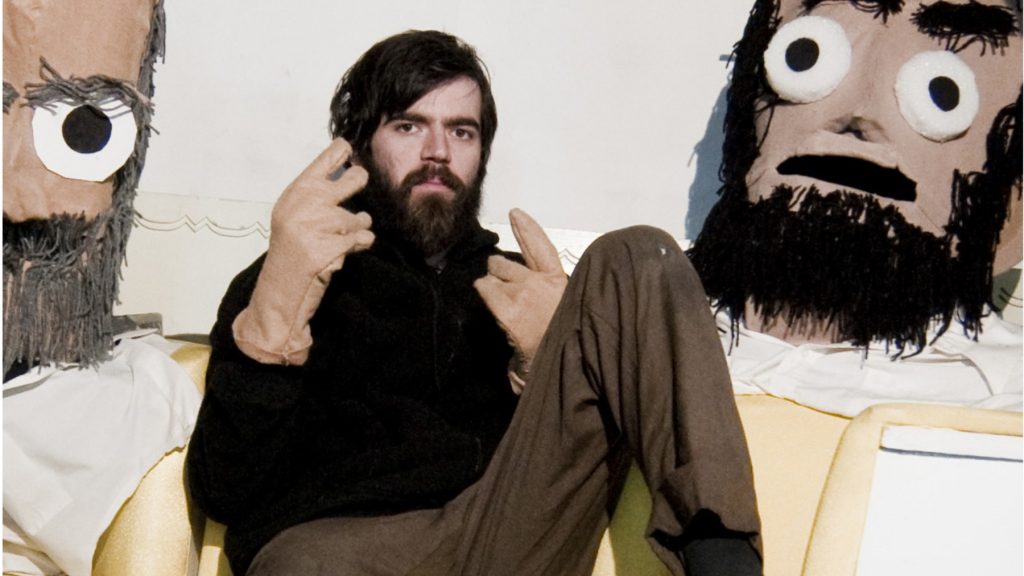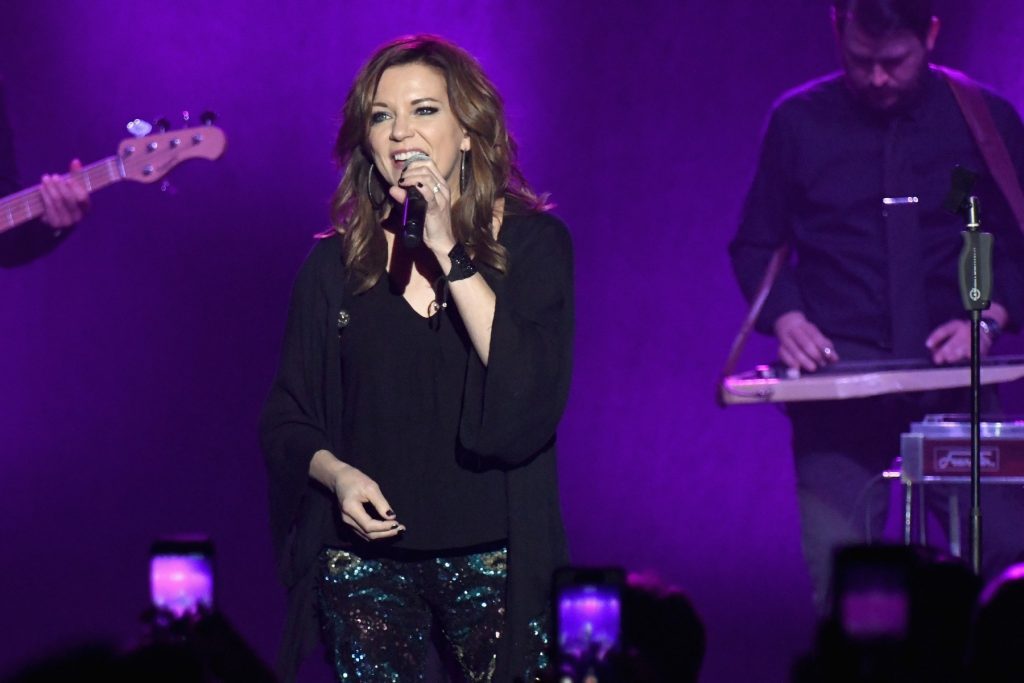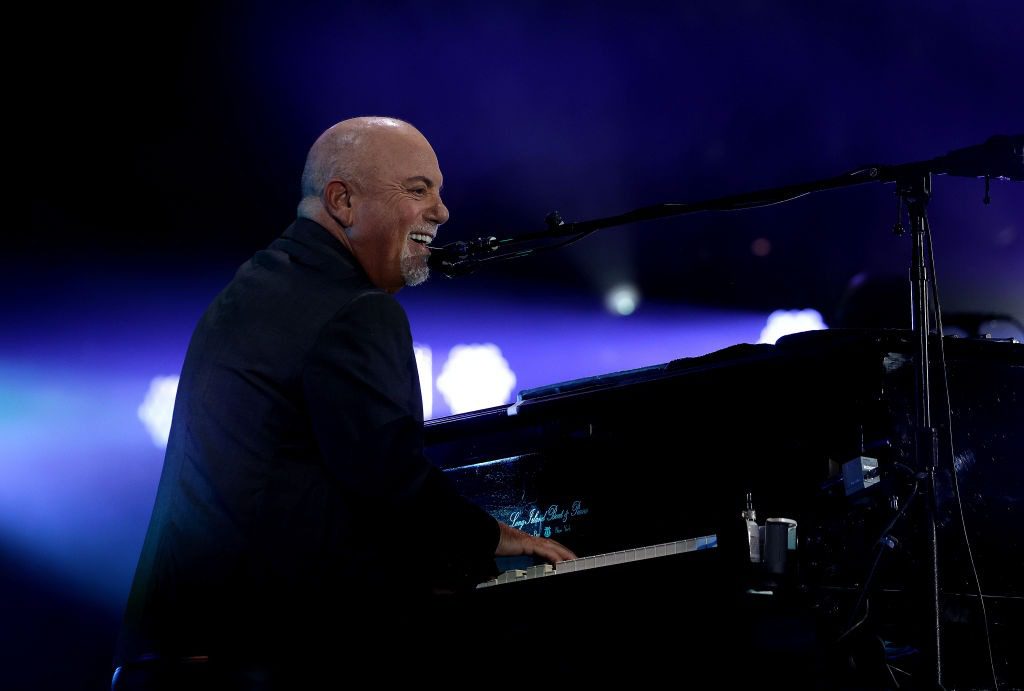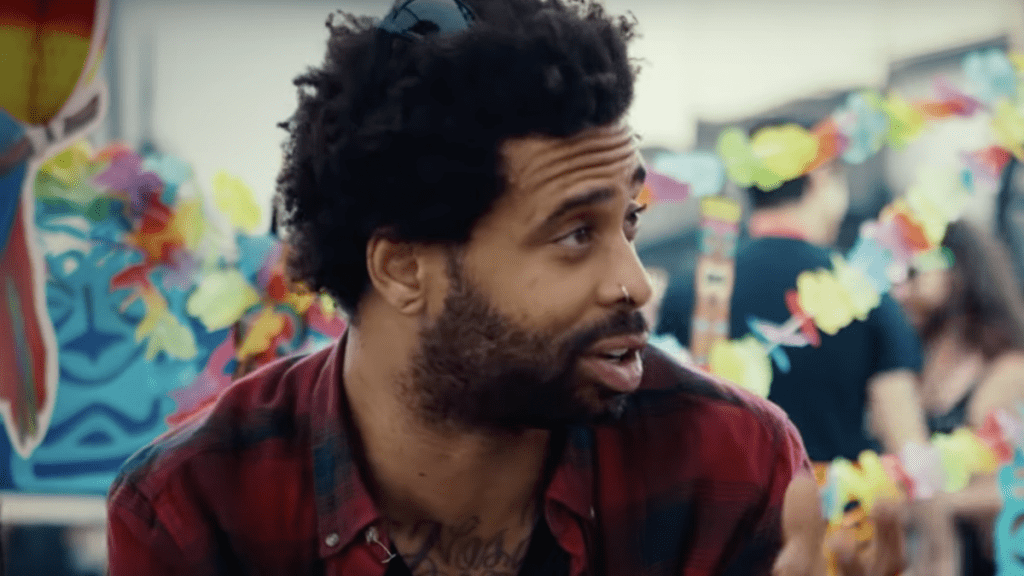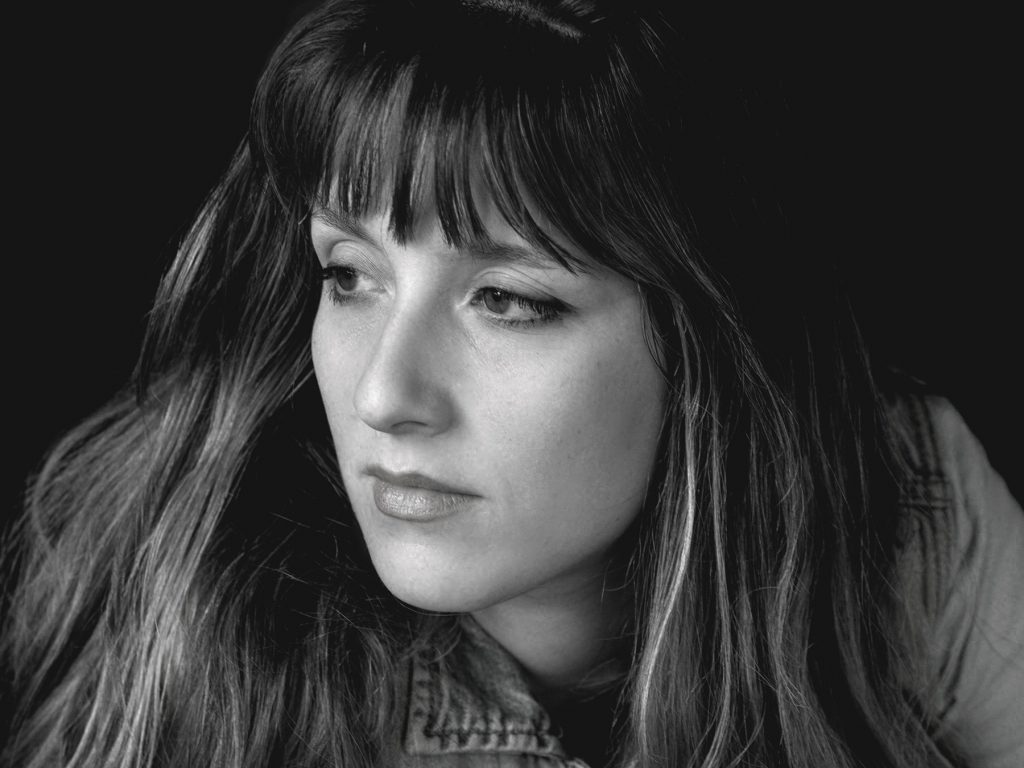
Don McLean’s Daughter Alleges Mental, Emotional Abuse by ‘American Pie’ Singer
The childhood home of Jackie McLean, frontwoman for indie rock duo Roan Yellowthorn, is nestled on a hilltop surrounded by woods. A nearly mile-long winding driveway separates the abode from a road that leads to the small coastal town of Camden, Maine, which it overlooks. From the outside, the idyllic setting may appear to be an enchanting, peaceful locale. But inside, McLean claims to IndieLand, the imposing fortress holds painful secrets of abuse that have festered for decades.
She says she was terrified of her father, musician Don McLean, who she claims mentally and emotionally abused her. While McLean has previously talked about the alleged mental abuse, she musically addresses what she calls “psychological warfare” stemming from her father for the first time on her new album, Another Life. She says working on the album, released last month via Blue Élan Records, was a step in the process to further open up about the abuse she says she has suffered.
Jackie does not allege any physical abuse by her father, but when she describes her father’s alleged emotional and mental abuse, she and her mother both describe fear for their own safety and “survival” in the house, language that is common to survivors of any type of abuse. Years later, she says, she still has physical responses to those memories. “If I talk about my experiences, my teeth chatter and I get cold and sweaty even if I hear his name,” the 31-year-old says. She says she has often vomited and been rendered immobile from interactions with her father. At times, she says she dissociates in order to cope.
blogherads.adq.push(function () {
blogherads
.defineSlot( ‘medrec’, ‘gpt-dsk-tab-article-inbody1-uid0’ )
.setTargeting( ‘pos’, [“mid-article”,”mid”,”in-article1″,”mid-article1″] )
.setSubAdUnitPath(“music//article//inbody1”)
.addSize([[300,250],[620,350],[2,2],[3,3],[2,4],[4,2]])
;
});
Her father is one of rock’s most enduring figures, fueled by his 1971 chart-topping classic “American Pie.” While he’s had other charting singles, “American Pie” has remained a cultural touchstone that has been famously covered and parodied. Four decades after its release, the nostalgic elegy to rock & roll and bygone eras was added to the Library of Congress’ National Recording Registry in 2016. In 2001, it was voted Number 5 in the Recording Industry Association of America and the National Endowment of the Arts’ list of Songs of the Century. At age 75, he continues to perform worldwide.
McLean describes her upbringing as living in a cult-like situation. “I’ve been drawn to books and documentaries about cults and part of the reason is because I really see something familiar,” she says. “It’s this feeling that there’s one person who is completely in charge and who’s almost supernatural, who knows everything and who has all the answers and who is somehow in charge of the world. And you are constantly trying to please that person. And it’s not that you just want to make them happy; it’s that you feel like your survival depends on it.”
McLean claims the abuse began in childhood with paralyzing verbal attacks, isolation and what she describes as conditioning, and continued with threats via withholding love and money. “It’s like somebody who says they love you the most in the world is being the worst to you and you want to reconcile those two things and somehow make it so that they act like they love you because they’re saying that they do,” she says. Texts, emails and recordings of calls between McLean and her father provided to IndieLand suggest a pattern of asserting control and manipulation over Jackie, her actions and memories, and a seeming drive by the elder McLean to maintain a certain public image.
One of her earliest memories of the abuse she says her father inflicted came when she was around two, she tells IndieLand. “My dad couldn’t find a key to a piece of furniture and he thought that I hid it and he was just screaming in my face,” she says. “I couldn’t leave, I couldn’t move, I couldn’t say anything. I didn’t know where the key was and I was just trapped in that moment having to endure the fear and the trauma until it ended. That was just a normal kind of thing that there would be screaming and yelling.
blogherads.adq.push(function () {
blogherads
.defineSlot( ‘medrec’, ‘gpt-dsk-tab-article-inbody2-uid1’ )
.setTargeting( ‘pos’, [“mid-article2″,”mid”,”in-article2″,”mid-article”] )
.setSubAdUnitPath(“music//article//inbody2”)
.addSize([[300,250],[300,251],[620,350],[2,4],[4,2],[3,3]])
.setLazyLoadMultiplier(2)
;
});
“You’re conditioned to feel like he has power over you… like he had ultimate power,” she says of the atmosphere in the household growing up. “I really felt like he was some sort of God. So, it’s not just that I’m worried that he’s gonna yell at me. It’s like he has … enough power over my life that if he’s angry at me he can do anything to ruin my life.”
In a lengthy interview with IndieLand, Don McLean denied any abusive behavior. “I don’t understand what mental and emotional abuse is,” McLean says. “There would never be any paralyzing attacks ’cause her mother was always around. I would never attack her anyway; I would never attack anybody. If I yelled at you for five minutes you’d think I yelled at you for an hour because it’s shocking. I would snap sometimes; I did have a temper. ”
“There was a constant state of fear in the house about the slightest thing [that] would make my dad turn into a crazy person.”
He says he grew up in a physically abusive household. “I was hurt a lot by my sister, my mother, my father, I was hit a lot and all that… that’s why this stuff stuns me that she says these things because I never wanted [my children] to cry or feel that,” he says. “I would never do that to a child so they were never touched nor was my ex-wife ever. There was never any violence; I’m very much opposed to that.”
Jackie’s references to a cult-like feeling in the home echo her mother Patrisha’s claims. While referring to her 29-year marriage to Don McLean before their eventual divorce, Patrisha told the Irish Times last year, “I do feel there is an element of brainwashing there. I relate to a lot of the things … about cults like the charismatic leader, and how their version of things becomes your version, the twisted version . . . and it’s crazy.”
“Our survival in the home was dependent on making sure he was happy, managing his moods, hypervigilant,” Patrisha adds in an interview with IndieLand. “It was all about placating and keeping the peace.”
In addition to denying any abuse, Don denies Jackie’s allegations of isolation and conditioning, and insists,“I empowered my children.” “I was a father of a family who was there for anybody who had any questions and who needed any answers,” he adds. “I didn’t condition anyone. I didn’t isolate anyone. I was away for … 40 percent of the year and during that time Jackie and her brother and her mother ran wild.”
blogherads.adq.push(function () {
blogherads
.defineSlot( ‘medrec’, ‘gpt-dsk-tab-inbodyX-uid2’ )
.setTargeting( ‘pos’, [“mid”,”mid-articleX”,”in-articleX”,”mid-article”] )
.setSubAdUnitPath(“music//article//inbodyX”)
.addSize([[300,250],[300,251],[3,3],[620,350]])
.setLazyLoadMultiplier(2)
;
});
Jackie says the early conditioning she says she experienced was structured into the “sterile” home where she lived with her father, mother and brother Wyatt. “It wasn’t a house that was meant to be lived in,” she says. “My dad decorated it very carefully and didn’t like it to be disturbed in any way.” Her bedroom was frozen in time, she claims; the same as it was when she was a child. “I was kind of kept in this castle, like far away, and I wasn’t really able to interact with other kids my own age.” She adds: “It was like my dad’s world, basically, that he made for himself.”
“If somebody moved an item in the house and he didn’t know where it was, then he would go on a rampage for hours… And everyone was just constantly on edge because it was chaos.”
“As far as conditioning and being isolated, I didn’t want a lot of kids around, that’s true,” Don McLean says. “When I was home, I didn’t want to run into people that I didn’t know.”
But Jackie says, “There was a constant state of fear in the house about the slightest thing [that] would make my dad turn into a crazy person … If somebody moved an item in the house and he didn’t know where it was, then he would go on a rampage for hours… And everyone was just constantly on edge because it was chaos.”
“Nothing could be altered,” according to Patrisha. “He had complete control over every furnishing; over every single thing that was in that house in her room, my room, every room in the house.”
“My houses to me are works of art and I am an antique collector and I design and decorate the rooms of my house and I certainly would not allow my children to come and willy-nilly throw anything around or move stuff around — that was a mistake I guess, but I never was on them about their rooms,” Don says, which “they could do what they wanted to in them.”
The emotional scars run deep as heard on “Bloodline,” where McLean describes the visceral impact of the trauma she says she experienced: “I’m fucked in the head/I’ve always been/Everyone in my family/Pretty much is,” she sings. “I try to be happy/But I’m not fine/Something’s there/In my Bloodline.”
Jackie says the environment in the home led to her developing coping rituals, anxiety, depression and OCD and as she developed, she says things worsened. “When I started having boyfriends and stuff like that, the tone changed more,” she says. “And it became more emotionally abusive as I got older.”
As she was growing up, Jackie says her dad “spearheaded” “a strong culture of misogyny … in big ways and in small ways,” which ultimately conjured shame. For example, she says that her father would frequently comment about women on television, saying they looked “ugly” or “fat.” She says, “Every stage of my development was met with some level of trauma. When I started shaving my legs, he got mad at me ’cause he noticed the razor in my room… When I got my first bra, he got mad about it.” (“In high school, Jackie would dress I thought sometimes inappropriately as some young ladies do for high school. I’d say, ‘you can’t go to school wearing that’,” Don says. “So I was doing what a father should do.”)
blogherads.adq.push(function () {
blogherads
.defineSlot( ‘medrec’, ‘gpt-dsk-tab-inbodyX-uid3’ )
.setTargeting( ‘pos’, [“mid”,”mid-articleX”,”in-articleX”,”mid-article”] )
.setSubAdUnitPath(“music//article//inbodyX”)
.addSize([[300,250],[300,251],[3,3],[620,350]])
.setLazyLoadMultiplier(2)
;
});
As Jackie saw it, “In his eyes, there was a limit to what I could be.” When Jackie started making music, she says his attitude seemed to be, “’You shouldn’t try to do that; you’re a mom, you can’t do that.’” (Don claims “she remembers things that I don’t.” What he recalls is telling her after he read her Moby Dick: “‘It was a man’s world,’ I said, ‘but the future is going to be a woman’s world and you are going to be perfectly suited for that world.’”) Patrisha says he discouraged Jackie’s music by saying loudly around the house so his children could hear, “One of my children — I won’t say which — doesn’t have much of a voice.”
“Every stage of my development was met with some level of trauma.”
Don denies the allegation that he did not support Jackie’s music. “I had put my best public relations people on [Jackie’s] last project and nothing happened. No one wanted to talk to her,” he says. “This record that we’re talking about now, whatever it is, she asked me to sing on that record with her and I said, ‘No I don’t want to.’” He says he had stopped trusting her after they had a falling out in 2016. “I still supported her, but I did not want to get close to her anymore. So, ‘he’s not giving me money, he won’t be on my album, so why not drop all this garbage on him and get some headlines?’”
Jackie says her self-esteem has been affected by her upbringing, which she details in songs “Another Life” and “Unkind.” On “Unkind,” she sings, “If I’ve learned anything/Nothing’s what it seems/I’d only disappoint you/Another shattered dream.” She says the tracks describe “the feeling of being unworthy and almost being disgusting for being a woman. Not feeling worthy of any love other than a love that’s going to be unrequited.”
She escaped the physical presence of her father when she left for college at Bard. But she says her father’s incessant phone calls led to compounding damage. Aside from everything that surrounded her parents’ 2016 divorce, she says “the most traumatic point” in her life came while dating Ebinumo “Ebi” Amabebe, whom she met in high school and began dating after graduation and into college.
“He was black, and basically I became a target in a way that I had never experienced before, in a way that was multiplied many times over the targeted abuse that I had experienced before,” she claims.
She says her father was on a “campaign” to get her to stop seeing him and that the near-daily calls from her dad were inescapable. “He would go on a tirade for an hour about how I needed to break up with my boyfriend,” she says. “How it was not OK that I was dating a black person, how it was disgusting of me and how I was ruining the family by doing it, and basically demanding that I stop.”
“[My boyfriend] was black, and basically I became a target in a way that I had never experienced before.”
Amabebe says at first they dated in secret: “I wouldn’t come up to the house or anything like that.” He recalls trouble starting shortly after meeting her father. “In the beginning, he didn’t really know I was black,” he says. “He thought she was dating some new guy and then I think after he met me that one time … then it became a really big thing.”
blogherads.adq.push(function () {
blogherads
.defineSlot( ‘medrec’, ‘gpt-dsk-tab-inbodyX-uid4’ )
.setTargeting( ‘pos’, [“mid”,”mid-articleX”,”in-articleX”,”mid-article”] )
.setSubAdUnitPath(“music//article//inbodyX”)
.addSize([[300,250],[300,251],[3,3],[620,350]])
.setLazyLoadMultiplier(2)
;
});
He says at first it started with Jackie saying she was told that interracial relationships are hard, and then it “escalated into ‘break up with him or I’m going to divorce your mom and move across the country.’” He says the younger McLean appeared “very upset” after her dad would call. Amabebe told Jackie that it was all “bluster,” but McLean said, “You have no idea what he’s capable of.” Amabebe adds: “It’s definitely abuse. It’s very hard to describe what’s going on just because it didn’t really make sense the way he was acting.”
Patrisha says her ex-husband was “furious” when Jackie and Ebi dated. “He would not tolerate a black person in our family,” she says. “He let us know that she was going to destroy the family by keeping a connection with this person.”
Don denies he had any issues with Jackie dating a black person. “Because I was very vigilant in high school about my daughter, I thought he was giving her a bunch of bullshit, and that’s all I said. I don’t care what color he was.”

Don McLean in Berlin, 2018.
POP-EYE/Heinrich/picture-alliance/dpa/AP
What to Don was just fatherly vigilance McLean experienced as verbal and mental abuse, which amplified when she would visit home from college. “At one point he got really close to me and told me that he wished he could hit me,” she recalls. McLean says the experiences made her “borderline suicidal” and afraid of her father.
McLean says her experiences also impacted her own nuclear family. She met Shawn Strack, her life and band partner, while at Bard and they later married and had two children. “My ability to trust has been still compromised by trusting somebody — my dad — over and over and over again and extending myself over and over and over again,” she says.
She says “Neon Sign” was written after a fight with Strack. “It’s a curse/It’s a burden/It’s a neon sign/It’s a secret that I’m hiding/For my therapist to find,” she sings. “It’s a scar that I brandish/To protect my own heart/In case everything falls apart.”
blogherads.adq.push(function () {
blogherads
.defineSlot( ‘medrec’, ‘gpt-dsk-tab-inbodyX-uid5’ )
.setTargeting( ‘pos’, [“mid”,”mid-articleX”,”in-articleX”,”mid-article”] )
.setSubAdUnitPath(“music//article//inbodyX”)
.addSize([[300,250],[300,251],[3,3],[620,350]])
.setLazyLoadMultiplier(2)
;
});
While Jackie had not yet shared the alleged emotional abuse publicly, an incident in early 2016 suggested things were amiss at home. In January 2016, her father was arrested for suspicion of domestic violence after Patrisha called 911. He initially faced six charges, including domestic violence and assault. In July 2016, as part of a plea agreement, he pleaded guilty to four charges, with the domestic assault charge being dismissed a year later. He paid fines for the remaining three charges and was not sentenced to jail time. (Don McLean has denied assaulting Patrisha and in February 2019, his lawyer claimed in a statement that he pleaded guilty “not because he was in fact guilty of anything, but to provide closure for his family and keep the whole process as private as possible.”) She filed for divorce in March 2016, which was finalized that June. Patrisha has a 10-year restraining order against Don.
Jackie says that over the years, she would go through periods where she would distance herself from her father, but she says around the time of her parents’ divorce, she reached out. “He was really nice, and he told me that he had changed and that everything was different, that he wasn’t mad and that he wanted to talk to me about everything I’ve gone through, and he wanted to be a good father,” she says.
In recorded conversations, McLean opens up to her father about how his alleged abuse affected her. She tells IndieLand that, at the time, she fell for his “love bombing,” but there were also warning signs. On the calls, he repeatedly tells Jackie to remove a since-deleted blog post discussing the alleged abuse and to never talk about the family publicly. He tells her she can talk to him about anything, offers apologies, and acknowledges he may have been “dictatorial and I was a little frightening” and a “control freak.” (“I was willing to put up with anything he did to me for the chance of having that love from him,” she says.) But when, on the recorded calls, McLean brings up moments that traumatized her, he denies some of her recollection of events.
He also asks her to talk to her mother on his behalf. During one of their conversations, he says, “You can be very helpful in gently suggesting things.” (“I’m not gonna blackmail mom,” Jackie told him.) “He wanted me to be a mouthpiece so that he could get messages to her,” she says. “He was calling me obsessively every day and going on these long tirades where he was screaming and demanding that I do something to help him, demanding that I call my mom and tell [her] to drop the restraining order [or] stop the proceedings towards the divorce. And it was so intense for me that I would throw up a lot of times after the conversation was over.”
“I don’t remember that stuff she’s talking about her being a ‘mouthpiece,’ whatever. I didn’t really understand the depth of the hatred that my ex-wife had for me and it took me a couple of years for that to sink in,” Don claims. “I was completely caught off guard by all this stuff.”
In an effort to maintain a relationship, Jackie attempted to set boundaries, which were pushed and questioned on the calls. The nature of their tenuous relationship can be heard on “Vampire.” “It really is a true representation of how I felt in a relationship with him, which is that I’m being hunted by something that feels all-powerful and supernatural and that I can’t escape from it,” she says.
“I think she was in that abusive world for so long, she didn’t recognize it [and] didn’t know how to face it” when they were younger, McLean’s friend Callie Hand says. Hand recalls McLean first hinted at the alleged abuse after McLean began dating Amabebe in the summer of 2008, “but without really going into detail,” Hand says. She says McLean began opening up further around the January 2016 incident between McLean’s parents. “Right before this stuff with her mom came out, she would tell me some stuff about him. And then when she was writing her music, I think all that was cathartic for her,” Hand says.
blogherads.adq.push(function () {
blogherads
.defineSlot( ‘medrec’, ‘gpt-dsk-tab-inbodyX-uid6’ )
.setTargeting( ‘pos’, [“mid”,”mid-articleX”,”in-articleX”,”mid-article”] )
.setSubAdUnitPath(“music//article//inbodyX”)
.addSize([[300,250],[300,251],[3,3],[620,350]])
.setLazyLoadMultiplier(2)
;
});
McLean says confiding in friends and working on Another Life helped her process her past. Though it addresses the relationship with her father, she says it’s about her own journey and healing. “It’s basically an open diary of my own feelings and impressions and efforts to work through trauma and come out of it on the other side a happier and more functional person,” she says.
Don says that in 2016, he and his daughter discussed events from when she was younger “over and over” and that he apologized to her. “Yes, I yelled once in a while, I’m so sorry,” he says he repeatedly told her. “This is a young lady who will not let go of this stuff and that’s her problem; really not the stuff itself but the fact that she won’t put it in the rearview mirror.”
Don says he told Jackie sometime last year that if she continued to “brag about” her mother, whom he calls “the worst person I have ever known,” he would stop supporting her financially. “She turned on me and she said, ‘you promised me this and that and the other thing, you promised me all this money and you haven’t given it to me and you’re just afraid I’m gonna say things about you if you don’t give me money,’” he claims. “And basically I said it sounded to me like extortion, like if you don’t start giving me money again like you always have, I’m gonna say some stuff about you. And I said, basically, ‘Go fuck yourself.’ I don’t care what you say. I was a good father to you and we all have problems growing up with our parents. But if you wanna go public and hurt me, I’ve had a lot of things said about me, I’m not giving you another cent.”
“[‘Vampire’] really is a true representation of how I felt in a relationship with him, which is that I’m being hunted by something that feels all-powerful and supernatural and that I can’t escape from it.”
Jackie says she reached a turning point following a series of texts from November 2019 and an email thread that began in June 2020, which led to her cutting off ties with her father for good. In the past when they would reconnect after a break, she says they both would share loving messages before the exchanges would devolve. This time was different. “He responded in a cold way and that kind of opened my eyes,” she says. In their 2020 email exchange, Jackie invited him to her daughter’s kindergarten graduation at her daughter’s request. He responded by asking for an apology for not acknowledging money he had sent, to which Jackie emailed him a text screenshot of her having already thanked him for it three months prior.
“He has always used the promise of money to control me. Always,” Jackie wrote in an email prior to our interview explaining their final email exchange, which she provided to IndieLand. “The check was part of it.”
blogherads.adq.push(function () {
blogherads
.defineSlot( ‘medrec’, ‘gpt-dsk-tab-inbodyX-uid7’ )
.setTargeting( ‘pos’, [“mid”,”mid-articleX”,”in-articleX”,”mid-article”] )
.setSubAdUnitPath(“music//article//inbodyX”)
.addSize([[300,250],[300,251],[3,3],[620,350]])
.setLazyLoadMultiplier(2)
;
});
In their 2019 text exchange, Don appears upset about not receiving public support from Jackie against Patrisha’s public criticisms. He writes, “You have not said publicly one good thing about me in 4 years,” and reminds her she would be “250 k in college debt without me.” He asks “what you have ever done to support me or honor me as the fabulous father I was to you.” Jackie texts: “A parents [sic] job is to love their child unconditionally and to guide them through life.” He texts: “You have dishonored and betrayed me frequently and you simply are not the kind of daughter I would have liked,” adding, “unless you support me publicly and frequently you should not expect me to lift a finger for you nor will I give you another red cent.”
In their email exchange, he writes, “Furthermore if you ever say anything negative about me on social media or anywhere again, our relationship will officially terminate and you will be written out if [sic] my will.” “I’d value a healthy relationship with you more than the money,” Jackie replies. “Please, no more threats.” The emails see-sawed from cold to loving to contentious, and Jackie has not spoken to her father since July 2020.
McLean hopes that sharing her experiences and her album will help others. “I hope that they realize that they’re not alone. I hope that they realize that what they’ve experienced is valid and real,” she says. “I know that people who are abused, me included, often feel like what they’ve gone through isn’t bad enough to call abuse or isn’t bad enough to count.”
McLean says opening up about the alleged abuse and addressing it in Another Life has been transformative. “To be able to actually give voice to things that I’ve been keeping in the dark inside of me for so long… that helps so much to eradicate shame,” she says. “I think when you’re transparent and you just put it all on the table, there’s nothing to be ashamed of anymore.”
